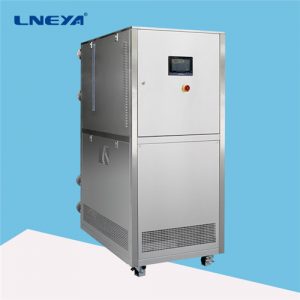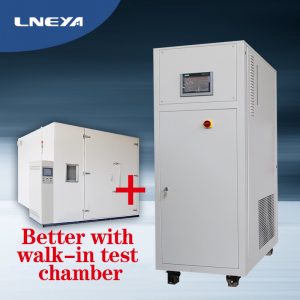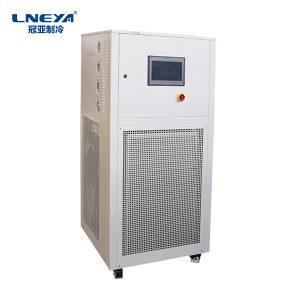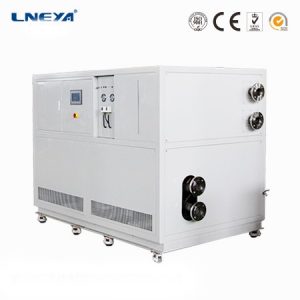What are the reasons for the power consumption of large-size refrigeration units?
During the operation of large-size refrigeration units, the cooling capacity and working conditions are the main issues of power consumption, but in order to avoid some unnecessary power consumption, we need to understand clearly.
When the scale on the tube wall of the condenser of the large-size refrigeration unit reaches 1.5mm, the condensing temperature will increase by 2.8°C compared with the temperature before the scale, and the power consumption will increase by 9.7. The surface of the large-scale refrigeration unit evaporator is covered with a layer of frost, which reduces the heat transfer coefficient, especially when the outer surface of the fin tube is frosted, which not only increases the heat transfer resistance, but also makes the air flow between the fins difficult and reduces The surface heat transfer coefficient and heat dissipation area. When the ambient temperature is lower than 0°C and the temperature difference between the two sides of the evaporator tube group is 10°C, the heat transfer coefficient of the evaporator is about 70 before frosting after one month of operation.
The gas sucked in by the compressor of a large-size refrigeration unit allows a certain degree of superheat, but the superheat is too high, the specific volume of the sucked gas increases, its cold production is reduced, the relative power consumption increases, the compressor is frosted, and the suction is quickly turned off. The valve drastically reduces the cooling capacity and relatively increases the power consumption.
As the evaporation temperature of the large-size refrigeration unit decreases, the compression ratio of the compressor increases, and the energy consumption per unit of cold production increases. When the evaporation temperature drops by 1℃, it will consume 3%-4% more electricity. Therefore, reduce the evaporation temperature difference as much as possible and increase the evaporation temperature, which not only saves power consumption, but also increases the relative humidity of the cold room.
As the condensing temperature of large-size refrigeration units increases, the compression ratio of the compressor increases, and the energy consumption per unit of cold production increases. When the heat exchange surface of the condenser and evaporator of a large refrigeration unit is covered with an oil layer, it will cause the condensation temperature to rise and the evaporation temperature to decrease, resulting in a decrease in cold production and an increase in power consumption. When the air accumulates in the condenser, it will cause the condensing pressure to rise, and the power consumption of the compressor will increase.
If the same large-size refrigeration unit has the same structure and speed, the cooling capacity and power consumption are different if the operating conditions are different. Therefore, the operator will perform the operation after understanding it clearly to avoid the increase in the operating cost of the enterprise.
Related recommendations
-
Points to pay attention to when choosing a reactor temperature cycle control machine
1505The temperature circulation control machine of the reaction kettle has always been an indispensable equipment for pharmaceutical and chemical enterprises. As a refrigeration and heating experimental equipment, if the purchased reactor temperature ...
View details -
How to clean the battery cooling system of new energy vehicles?
1328The battery cooling system of the new energy model first unscrews the three screws on the upper part of the wet curtain, holds the louvers on the upper part of the wet curtain, gently pulls the wet curtain outward and then lifts it up slightly to ...
View details -
Chip high and low temperature aging test box system design
1661The high and low temperature aging test box of the chip is applied to the high and low temperature test industry of the chip. The design schemes provided by the high and low temperature aging test box manufacturers of different chips are different...
View details -
Fully closed cycle high viscosity fluid refrigeration heating flow control system
1313Application:1. The tested object is connected to a test platform adapter.2. The internal parts of the parts are cooled, heated, flow controlled, and pressure controlled by various lubricating oils, hydraulic oils, aviation fuel, fuel oil, and co...
View details
 LNEYA Industrial Chillers Manufacturer Supplier
LNEYA Industrial Chillers Manufacturer Supplier















